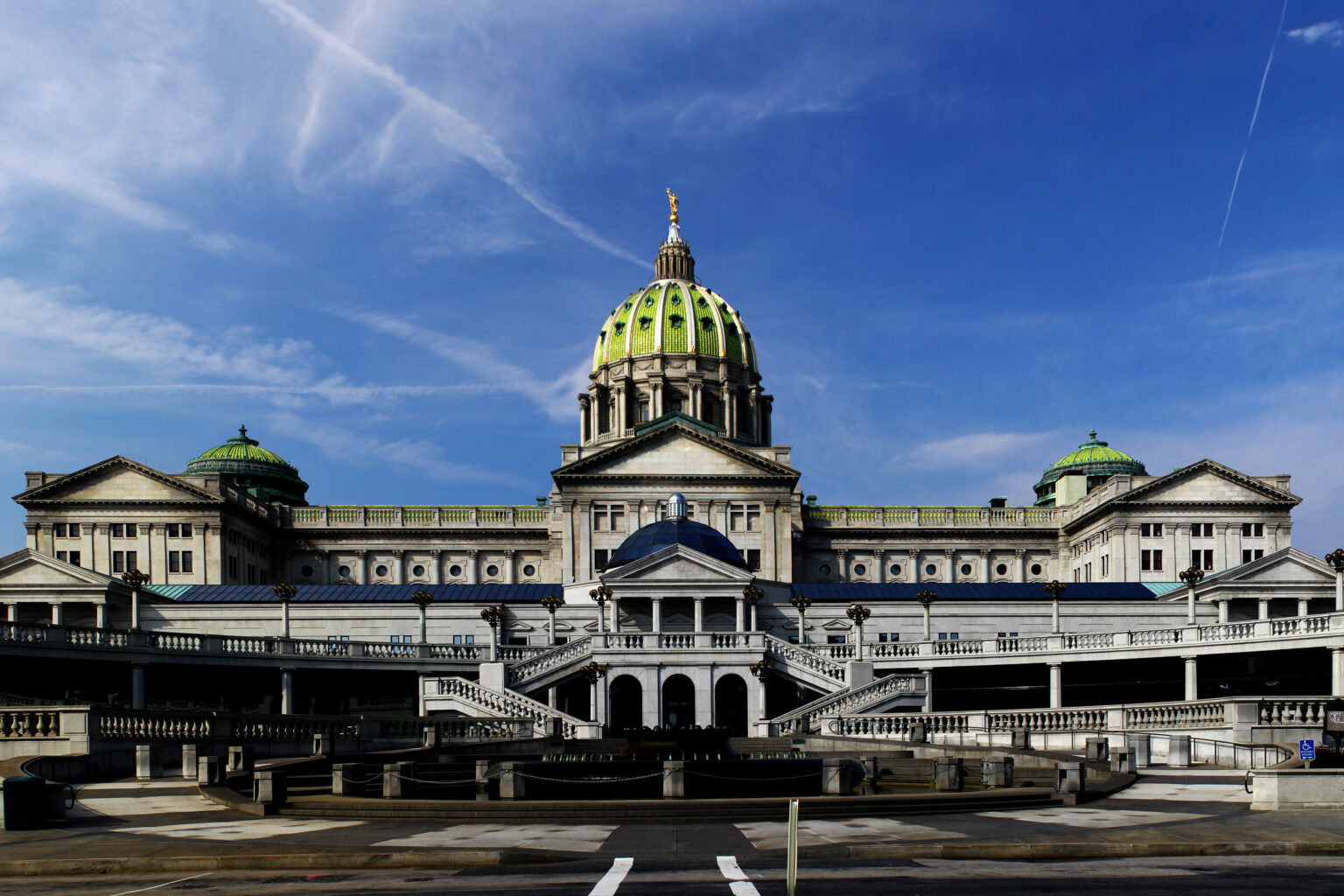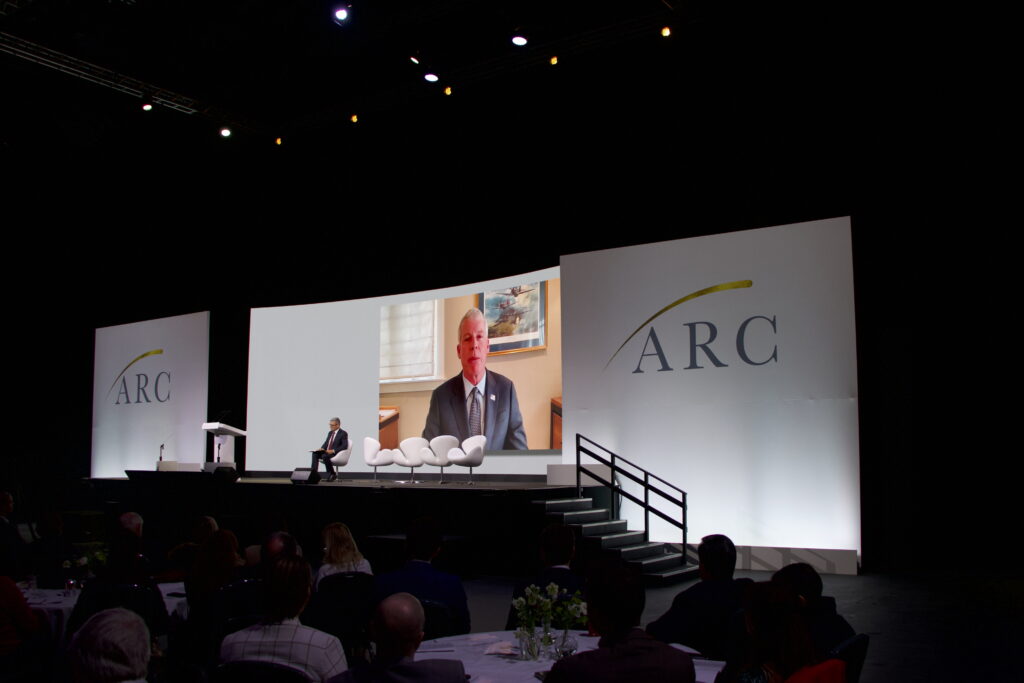This story originally appeared in Capital & Main and is part of Covering Climate Now, a global journalism collaboration strengthening coverage of the climate story.
As chair of the key environmental committee in Pennsylvania’s newly Democratic House of Representatives, Greg Vitali was hopeful his committee could begin advancing meaningful climate policy after years of playing defense.
But even as political power in the Legislature has shifted, oil and gas lobbying groups and unions representing some of their workers continue to be a powerful force against climate legislation. And, Vitali says, they have managed to successfully block several climate bills in the Legislature — for now.
That is what he says happened on Tuesday, June 27, when Vitali abruptly canceled a scheduled vote for two bills to be considered by the House Environmental Resources and Energy Committee, which he chairs. One bill would prohibit the most energy-intensive form of cryptocurrency mining in Pennsylvania for two years. Another would require natural gas wells to be placed at least 2,500 feet from buildings or groundwater wells.
Vitali was late for the hearing. Looking flustered, he called roll, then told those gathered that a Democratic House leader had just phoned him to ask him to cancel the day’s votes on the two bills.
“OK, here’s the situation,” Vitali started. “Five minutes ago, I was called by my leadership and asked to not run these bills. I am deeply disappointed by this decision, but I am going to comply.”
“That’s all the business I have,” he continued. “This meeting is adjourned.”
Vitali told Capital & Main that his committee had, the night before, secured enough votes to pass both bills. “We were ready to go with two pieces of solid environmental legislation,” he said. “We put a lot of work into these bills … did the prep work, and I was, frankly, in my office ready to walk down to the meeting.”
The call came “about seven or eight minutes before the meeting,” he said. When he expressed resistance to canceling the votes, he was told “there may be possible consequences if you don’t,” Vitali said.
House Speaker Joanna McClinton and majority leader Matt Bradford did not comment in time for publication.
With a slim majority for the first time since 2010, House Democrats have celebrated passing more than 100 bills this year. Major climate bills are thus far not among them.
Several bills Vitali introduced this session were opposed by industry and labor groups like the Pennsylvania Independent Oil and Gas Association, the Pennsylvania Chamber of Business and Industry, the Mid Atlantic Laborers, the International Brotherhood of Boilermakers and the International Brotherhood of Electrical Workers, the latter two of whom represent workers in the energy sector. The natural gas well setback bill, HB 170, and previous setback proposals were opposed by the Marcellus Shale Coalition, a natural gas trade group, and the American Petroleum Institute.
“The oil and gas industry, labor, they seem to win at every turn,” Vitali said. “If you look at the composition of the meeting room today you’re gonna see a lot of lobbyists or interest groups. If you look at the restaurants on session night, you’re gonna see a lot of meals being paid for by the interest groups. I think there’s a real problem.”
The House Democratic Caucus has not passed “a significant piece of environmental legislation this term,” Vitali said. Several climate bills that cleared House committees have yet to be called for votes before the full House, which is scheduled to recess on June 30 until September.
Environmentalists were cautiously optimistic that a shifting of political power in the Capitol after Democrats took the House in February would forge a stronger path for climate protection in at least one chamber of the Legislature in the No. 2 natural gas producing state, where oil and gas industry lobbyists roam the halls of the Capitol and attempt to block regulations at every go. Republicans still hold the Senate — so getting environmental policy to the governor’s desk poses a different challenge. But Democratic majorities in one chamber’s committees offer a strong starting point.
After Tuesday’s aborted meeting, environmentalists are left scratching their heads. The meeting’s cancellation could have been a maneuver tied to budget negotiations, some suspect, and other climate bills stalling before the House floor — such as a bill to restore regulators’ authority over oil and gas well bonds, which left committee in May — could be waiting for the right number of votes to successfully pass. With a 102-101 split, every vote counts.
“It was easy to get those bills out of committee because the Democrats control those committees by a margin of a number of votes,” said Dave Hess, former Department of Environmental Protection secretary and author of the PA Environment Digest, a daily news blog. “It’s much harder to make sure all the votes are in place to pass something that is more controversial.”
Hess is more optimistic that the natural gas setbacks and cryptocurrency mining bills, as well as other climate policies, could be voted on when the Legislature resumes in the fall.
Vitali said his committee will not “give up” on stalled bills.
“We will continue to work on these issues,” he said. “The problem is the same political dynamic will be there in the Fall, which is the unhealthy influence of special interest groups on environmental policy.”
Meanwhile, the Pennsylvania Senate, with its Republican majority, has successfully advanced a slate of bills that would narrow the power of environmental regulators — one that would limit the conditions under which citizens could appeal environmental permit decisions with a state judicial body, the Environmental Hearing Board, and another that would take the word “protection” out of the Department of Environmental Protection’s name. The Senate Environmental Resources and Energy Committee recently advanced a billthat would make it easier for the state to build a fossil-fuel powered hydrogen hub by pursuing state authority over CO2 injection wells. In an unrelated hearing of that committee on Monday to confirm Acting DEP Secretary Rich Negrin, chairman Eugene Yaw (R) expressed discontent with HB 170, the setbacks bill, signaling an uphill battle for the legislation even if it had made it out of the House sister committee.
Several key voices in the Senate have personal ties to the oil and gas industry, throwing another wrench in the future of environmental legislation. Yaw, chair of the Senate Environmental Resources and Energy and vocal proponent for anti-regulatory policy, has leased his own land to oil and gas companies. The son of Senate Pro Tempore Kim Ward (R) is a lobbyist who represents the Pennsylvania Grade Crude Oil Coalition, a conventional oil industry trade group. Meanwhile, the trade groups that have opposed climate bills have spent hundreds of thousands of dollars on lobbying in the first few months of 2023 alone.
Charles McPhedran, senior attorney in Earthjustice’s Clean Energy Program, called the canceled vote on HB 1476, the cryptocurrency moratorium, a “step sideways” in the path toward passing sound regulations on the energy-intensive industry. “We expect to see more steps forward in the future. The fact that the members of this House committee were prepared to vote to move this bill forward is encouraging.”
Rep. Danielle Friel-Otten (D), prime sponsor of HB 170, the natural gas setbacks bill, did not immediately respond to Capital & Main’s request for comment.
But to groups on the front lines of oil and gas development, whom the bill would have impacted firsthand, the canceled vote comes at the expense of resident safety.
“It seems to me that Pennsylvanians cannot depend on … the Pennsylvania Legislature to defend public health and protect Pennsylvanians’ constitutional right to clean air, pure water and a safe environment,” said Ned Ketyer, president of Physicians for Social Responsibility Pennsylvania, which supports HB 170. “It appears we are on our own.”
Subscribe to our newsletter
Stay up to date with DeSmog news and alerts







